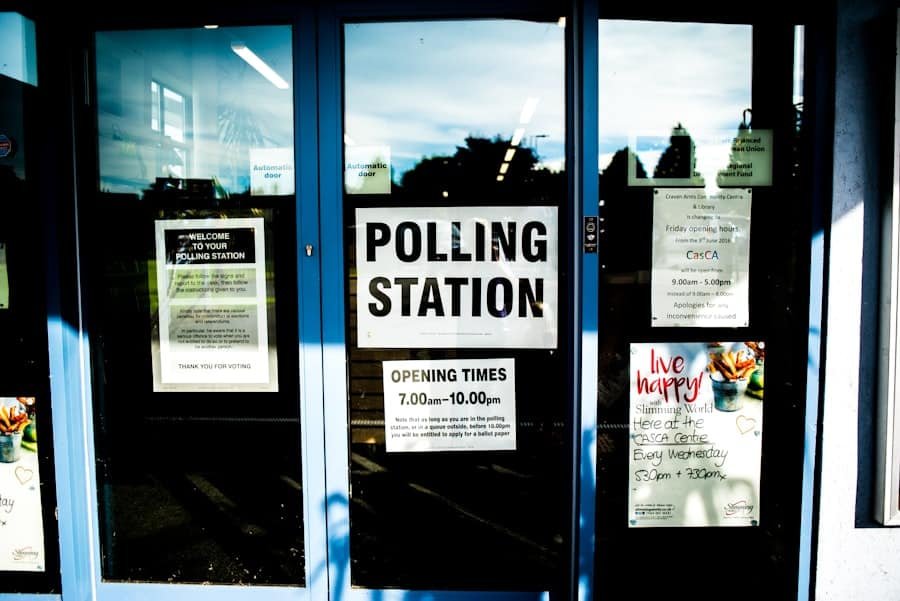The integration of artificial intelligence (AI) into the political landscape has transformed the way elections are conducted and how political campaigns are strategised. As technology continues to evolve, AI has emerged as a powerful tool that can analyse vast amounts of data, predict voter behaviour, and tailor messages to specific demographics. This technological advancement has not only changed the dynamics of political engagement but has also raised questions about the implications of such tools on democracy and electoral integrity.
The use of AI in politics is not merely a trend; it represents a fundamental shift in how political entities interact with the electorate, making it essential to understand its multifaceted role in contemporary elections. AI’s capabilities extend beyond mere data analysis; they encompass a range of applications that can enhance political strategies. From micro-targeting voters based on their preferences to automating responses on social media platforms, AI has become an indispensable asset for political campaigns.
However, this reliance on technology also brings forth challenges, particularly concerning ethical considerations and the potential for misuse. As we delve deeper into the various dimensions of AI’s involvement in politics and elections, it becomes evident that while it offers significant advantages, it also necessitates a critical examination of its impact on democratic processes.
Summary
- AI is increasingly being used in politics and elections to target voters, predict behaviour, and influence communication and media.
- AI plays a significant role in voter targeting and messaging, allowing political campaigns to tailor their messages to specific demographics and individuals.
- AI has a major impact on political campaigns and fundraising, enabling more efficient and targeted fundraising efforts.
- AI is used to predict and influence voter behaviour, allowing campaigns to strategize and tailor their messaging to sway undecided voters.
- AI has a significant influence on political communication and media, shaping the way information is disseminated and consumed by the public.
AI’s Role in Voter Targeting and Messaging
One of the most significant applications of AI in politics is its ability to refine voter targeting and messaging. Political campaigns now leverage sophisticated algorithms to analyse voter data, including demographics, past voting behaviour, and social media activity. This data-driven approach allows campaigns to identify specific segments of the electorate that are more likely to respond positively to particular messages or policies.
For instance, during the 2016 US presidential election, the Trump campaign famously utilised data analytics firm Cambridge Analytica to micro-target voters with tailored advertisements that resonated with their individual concerns and interests. The precision of AI-driven targeting enables campaigns to allocate resources more effectively, ensuring that messages reach the right audience at the right time. By employing machine learning techniques, campaigns can continuously refine their strategies based on real-time feedback and engagement metrics.
This dynamic approach not only enhances the effectiveness of campaign messaging but also fosters a more personalised connection between candidates and voters. However, this level of targeting raises ethical questions about manipulation and the potential for creating echo chambers where voters are only exposed to information that reinforces their existing beliefs.
AI’s Impact on Political Campaigns and Fundraising

The influence of AI extends into the realm of political fundraising, where it has revolutionised how campaigns raise money and engage with donors. AI algorithms can analyse donor behaviour, identifying patterns that indicate which individuals are most likely to contribute to a campaign. By segmenting potential donors based on their past contributions, interests, and social networks, campaigns can tailor their outreach efforts to maximise fundraising success.
For example, during the 2020 election cycle in the United States, many campaigns employed AI tools to optimise their fundraising strategies, resulting in unprecedented levels of financial support. Moreover, AI can enhance donor engagement by automating communication and personalising interactions. Chatbots powered by AI can handle inquiries from potential donors, providing them with information about the campaign and facilitating contributions seamlessly.
This automation not only streamlines the fundraising process but also allows campaign staff to focus on higher-level strategic planning rather than routine administrative tasks. However, as campaigns increasingly rely on AI for fundraising, concerns arise regarding transparency and accountability in how funds are solicited and utilised.
AI’s Role in Predicting and Influencing Voter Behaviour
AI’s predictive capabilities have become a cornerstone of modern political strategy, enabling campaigns to anticipate voter behaviour with remarkable accuracy. By analysing historical voting patterns alongside current socio-economic data, AI models can forecast election outcomes and identify key issues that resonate with different voter segments. For instance, during the 2019 UK general election, various political parties employed predictive analytics to gauge public sentiment on critical issues such as Brexit and healthcare, allowing them to adjust their platforms accordingly.
Beyond prediction, AI also plays a role in influencing voter behaviour through targeted advertising and strategic messaging. Campaigns can deploy ads that address specific concerns or aspirations of voters, thereby shaping public opinion and potentially swaying undecided voters. The use of social media platforms as a battleground for these targeted messages has become increasingly prevalent, with algorithms determining which content is shown to which users based on their online behaviour.
This raises important questions about the ethical implications of such influence and whether it undermines the principles of informed decision-making in a democratic society.
AI’s Influence on Political Communication and Media
The advent of AI has significantly altered the landscape of political communication and media engagement. News outlets and social media platforms increasingly utilise AI algorithms to curate content and determine what information is disseminated to the public. This shift has profound implications for how voters consume information about candidates and policies.
For example, AI-driven recommendation systems can create filter bubbles that limit exposure to diverse viewpoints, potentially skewing public perception and polarising political discourse. Moreover, AI-generated content is becoming more prevalent in political communication. Deepfake technology, which uses AI to create realistic but fabricated videos, poses a unique challenge for media integrity.
The potential for misinformation is heightened as these tools become more sophisticated, making it increasingly difficult for voters to discern fact from fiction. Political campaigns must navigate this complex media landscape while ensuring that their messaging remains credible and trustworthy amidst a sea of manipulated content.
AI’s Role in Detecting and Preventing Election Fraud

As concerns about election integrity grow, AI has emerged as a valuable tool for detecting and preventing electoral fraud. By analysing voting patterns and anomalies in real-time, AI systems can identify irregularities that may indicate fraudulent activity. For instance, machine learning algorithms can scrutinise voter registration data to flag suspicious entries or detect patterns that deviate from expected behaviour during elections.
This proactive approach enhances the ability of election officials to address potential issues before they escalate. Furthermore, AI can assist in monitoring social media platforms for misinformation or disinformation campaigns aimed at undermining electoral processes. By employing natural language processing techniques, AI can analyse vast amounts of online content to identify false narratives or coordinated efforts to manipulate public opinion.
This capability is crucial in safeguarding democratic processes from external interference and ensuring that voters have access to accurate information when making decisions at the ballot box.
Ethical and Privacy Concerns Surrounding AI in Politics
The increasing reliance on AI in politics raises significant ethical and privacy concerns that warrant careful consideration. One major issue is the potential for data misuse and breaches of privacy as campaigns collect vast amounts of personal information from voters. The Cambridge Analytica scandal highlighted how personal data could be exploited for political gain without individuals’ informed consent.
This incident underscored the need for robust regulations governing data collection and usage in political contexts. Moreover, the ethical implications of using AI for voter targeting and influence cannot be overlooked. The fine line between persuasion and manipulation becomes blurred when algorithms are employed to exploit psychological vulnerabilities or biases within specific voter groups.
As campaigns harness the power of AI to shape narratives and influence opinions, there is a pressing need for transparency regarding how these technologies are used and the potential consequences they may have on democratic processes.
The Future of AI in Politics and Elections
Looking ahead, the role of AI in politics and elections is poised to expand further as technology continues to advance. The potential for enhanced voter engagement through personalised communication strategies will likely become more pronounced as campaigns seek innovative ways to connect with constituents. Additionally, as AI tools become more accessible, smaller parties may leverage these technologies to compete more effectively against larger incumbents.
However, this future also necessitates a concerted effort to address the ethical challenges associated with AI in politics. Establishing clear guidelines for data usage, ensuring transparency in algorithmic decision-making, and fostering public trust will be crucial as society navigates this evolving landscape. As we embrace the benefits of AI in enhancing democratic processes, it is imperative that we remain vigilant against its potential pitfalls, ensuring that technology serves as a tool for empowerment rather than manipulation within our political systems.
Artificial intelligence is not only shaping the political landscape but also influencing various other industries. One interesting article that delves into the world of online gaming is How to Gamble on CSGO Gambling Sites in 2023. This article explores the use of AI in predicting outcomes and strategies in the world of online gaming, showcasing how technology is revolutionising even the most unexpected sectors. Just like AI is changing the way we approach politics and elections, it is also transforming the way we engage with entertainment and leisure activities.
FAQs
What is AI?
AI stands for artificial intelligence, which refers to the simulation of human intelligence in machines that are programmed to think and learn like humans.
How is AI influencing politics and elections?
AI is influencing politics and elections in various ways, such as through the use of data analysis to target voters, the creation of deepfake videos to spread misinformation, and the automation of tasks in political campaigns.
What are the potential benefits of AI in politics and elections?
AI has the potential to improve the efficiency of political campaigns, enhance voter engagement, and provide valuable insights through data analysis.
What are the potential risks of AI in politics and elections?
The potential risks of AI in politics and elections include the spread of misinformation, the manipulation of public opinion, and the erosion of trust in democratic processes.
How are governments and regulatory bodies addressing the influence of AI in politics and elections?
Governments and regulatory bodies are exploring ways to regulate the use of AI in politics and elections, such as implementing transparency measures and guidelines for the use of AI technologies in political campaigns.
